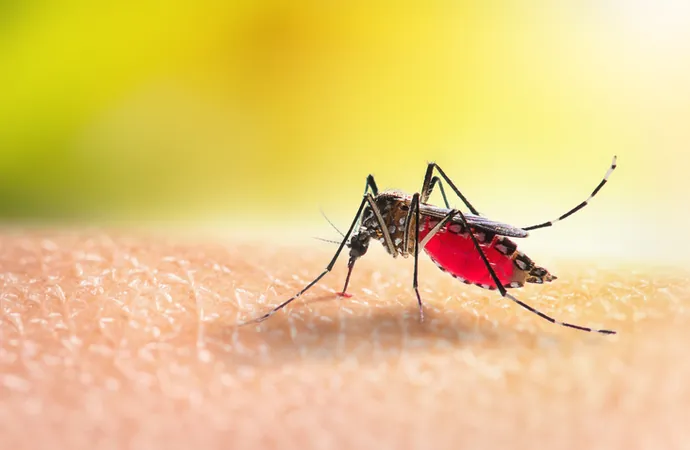
Breakthrough Discovery: Key Biological Markers Unveiled for Combatting Severe Malaria
2025-06-10
Author: Siti
Revolutionary Findings in Severe Malaria Treatment
Scientists at Northwestern University have made a groundbreaking discovery in their quest to tackle severe malaria infections in children. Their study, featured in *Nature Communications*, reveals crucial biological markers that could transform future treatments for this deadly disease.
Malaria poses a dire global health crisis, especially affecting young children in sub-Saharan Africa. While some cases exhibit mild, flu-like symptoms, others escalate into life-threatening complications, including brain inflammation and severe anemia. Dr. Rafal Sobota, assistant professor in the Ken and Ruth Davee Department of Neurology, led the study, aiming to unravel the human genetic factors that make certain individuals more susceptible to severe malaria.
Connecting Genetic Cues to Disease Severity
The study focused on *Plasmodium falciparum* malaria cases in Mali, comparing children experiencing severe forms—like cerebral malaria and severe malarial anemia—with those suffering milder infections. The research employed cutting-edge multi-omics techniques, analyzing gene activity, protein levels, and blood metabolites to uncover vital molecular signatures linked to the most critical cases.
Uncovering elevated activity of three specific genes—MMP8, IL1R2, and ARG1—linked to the inflammatory response, the researchers found that these markers were prominently active across various severe malaria subtypes. This suggests that the most dangerous manifestations of the disease may share a common inflammatory pathway.
Implications for Future Treatments
In addition, the study highlighted increased levels of TIMP-1, MMP8, and MMP9—proteins associated with central nervous system damage—which might indicate a breakdown of the protective barrier between the bloodstream and brain tissue, exacerbating neurological complications.
Dr. Sobota noted, "By comparing different severe malaria subtypes, we identified specific biological markers that differentiate these dangerous forms from one another. This opens new avenues for targeted therapies that could change patient outcomes."
Looking Ahead: Subtypes of Cerebral Malaria
The research team plans to delve deeper into the distinctions among patients suffering from cerebral malaria, a condition traditionally viewed as a singular entity. Dr. Sobota expressed the need for a more refined approach, stating, "If varying mechanisms trigger cerebral malaria, we may require tailored strategies to identify effective therapies for each subtype."
This vital research was supported by various grants from the National Institutes of Health, highlighting the importance of continued scientific exploration to combat one of the world’s most significant health challenges.



 Brasil (PT)
Brasil (PT)
 Canada (EN)
Canada (EN)
 Chile (ES)
Chile (ES)
 Česko (CS)
Česko (CS)
 대한민국 (KO)
대한민국 (KO)
 España (ES)
España (ES)
 France (FR)
France (FR)
 Hong Kong (EN)
Hong Kong (EN)
 Italia (IT)
Italia (IT)
 日本 (JA)
日本 (JA)
 Magyarország (HU)
Magyarország (HU)
 Norge (NO)
Norge (NO)
 Polska (PL)
Polska (PL)
 Schweiz (DE)
Schweiz (DE)
 Singapore (EN)
Singapore (EN)
 Sverige (SV)
Sverige (SV)
 Suomi (FI)
Suomi (FI)
 Türkiye (TR)
Türkiye (TR)
 الإمارات العربية المتحدة (AR)
الإمارات العربية المتحدة (AR)